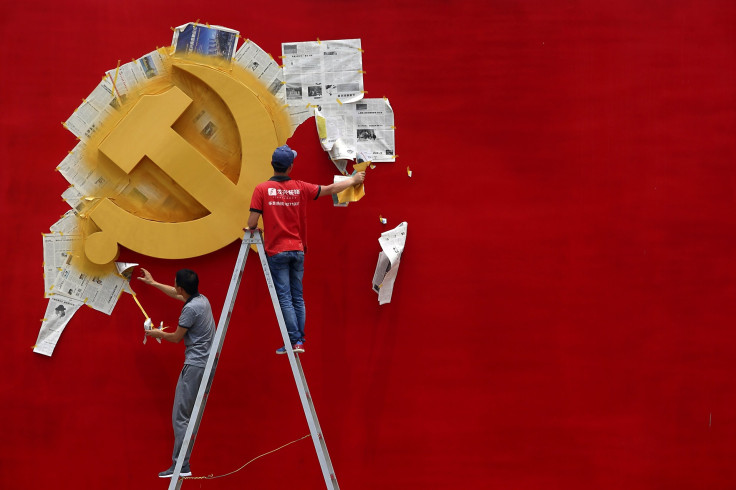China Launches Nationwide Survey Of Suicides By Officials As Anti-Corruption Drive Takes Its Toll

Chinese authorities have initiated a nationwide survey of alleged suicides among the country's Communist Party members, as an anti-corruption crackdown launched by President Xi Jinping appears to have prompted several officials to take their own lives.
The Party has sent survey forms out to officials across the country, asking them to report “unnatural deaths” since December 2012 when Xi became General Secretary and launched his anti-corruption campaign, the South China Morning Post reported. The survey asks officials to list details of suicides supposedly committed by Party members, and information such as the name, rank and gender of the official who took their own life, along with the method by which they killed themselves and whether they were under investigation for corruption at the time of their death.
Since coming to power, Xi has launched an anti-corruption crackdown that has targeted both “tigers” and “flies” -- high-level and lowly members of the country's bureaucracy, according to the Guardian. And, a 2014 report showed that 54 Chinese officials died “unnatural deaths” in 2013, and over 40 percent of those deaths were the result of suicide. The statistic puts the Party's system of internal discipline, known as “shuanggui,” under scrutiny.
“For many officials they would rather die than be detained,” Zhang Lifan, a Beijing-based historian who previously worked at the Chinese Academy of Social Sciences, told Bloomberg. “The data is being gathered as the top leadership is trying to change the beleaguered discipline system of shuanggui.”
In the last year, a number of high-profile Chinese officials have taken their own lives, including a deputy director of the state-run news agency, Xinhua, and a senior officer in the country's People's Liberation Army Navy. Senior Party figures have also been prosecuted as a result of the anti-corruption movement. According to official figures, 68 high-ranking Party members were investigated in 2014, including ex-security chief Zhou Yongkang and former deputy chief of the Central Military Commission, Xu Caihou.
Many Chinese citizens see the Party as a vehicle designed to enrich its senior members and view the anti-corruption drive as a ruse to increase the legitimacy of the country's unelected government, which stifles all political dissent.
The Party does not express regret for the collateral damage in human lives that its policy may cause. According to BBC, Xi has said that it is a life-and-death battle for the survival of the Party itself. But, some analysts see the drive as an effort by the ruling cadres to purge any political opposition from key posts in the government and the military.
"The anti-corruption (drive) is a means to an end. The goal is to promote his own men and like-minded officials to key positions to push through reforms," an unnamed source told Reuters.
© Copyright IBTimes 2024. All rights reserved.












